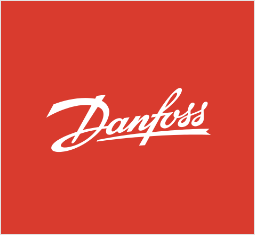Feature Story KR provides comprehensive EEXI/CII services to support industry transi…
페이지 정보
작성자 최고관리자 댓글 0건 조회 3,784회 작성일 21-09-15 19:15본문
Korean Register(KR) has conducted a preliminary analysis to ascertain the industry’s readiness for the IMO’s new Energy Efficiency Existing Ship Index(EEXI) and the Carbon Intensity Indicator(CII) regulations, and has released a comprehensive presentation on Youtube to help shipowners prepare and manage compliance.
The 76th session of the IMO’s Marine Environment Protection Committee(MEPC 76) took place remotely, running from 10-17 June 2021. Following the meeting, amendments to MARPOL Annex VI were adopted to implement the EEXI as a technical approach and the CII as an operational approach to achieve the short-term measures to cut carbon emissions from ships. The new measures will be applied to existing ships from 2023, creating a significant challenge for the maritime industry.
The key decisions from the session regarding the EEXI/CII guidelines are:
- Where an engine power limitation(EPL) is installed, the engine power in the EEXI calculation(PME) should be 83% of the maximum limited power(MCRlim) or 75% of maximum power(MCR), whichever is lower,
- the CII reduction rate will be applied equally to all ships regardless of ship type, and the method of applying the reduction rate in stages was adopted
- numerical analysis has been accepted as a substitute for the model test, and
- the SEEMP guidelines were not finalised but have been sent to a Correspondence Group for further work.
KR has conducted a preliminary analysis to estimate the impact of the new regulations on the industry. The results show that most ships do not meet the EEXI regulations and the ships that do meet the regulations, are small in size.
If the EEXI regulations are not satisfied, the shipping company must implement other measures such as installing a shaft/engine power limitation(SHAPoli/EPL) system or Energy Saving Device(ESD) to improve the vessels energy efficiency. When the shaft/engine output limiting system is applied without ESD or retrofitted, the shipping company should expect a reduction of ship speed from 0.9 knots to 6.5 knots(tanker average 1.7 knots, bulk average 2.4 knots, container average 4.1 knots) which is a rapid deceleration.
KR is providing customized technical services to allow its customers to adopt the most beneficial countermeasures for their individual vessels, such as determining exactly how much engine power limitation and reduction in ship speed is required. KR has also launched web-based smart software to provide EEXI calculations and CII, offering an easy and simple way to check whether a vessel meets the EEXI requirements or not.
KR has published a presentation on its Youtube channel, offering comprehensive guidance on EEXI/CII compliance, with details of its preliminary analysis and introducing energy saving devices which will help shipping companies to make the necessary changes to manage their decarbonization progress. KR is also developing manuals and will be offering training seminars to support this important and rapid industry transition.
Dr. SONG Kanghyun, Senior Vice President of KR’s Decarbonization Ship R&D Center, says: “Decarbonization is a top priority for KR as the IMO regulations become more and more demanding. We hope that our new Youtube video will be a useful tool for customers, helping them gain a deep understanding of the appropriate measures to respond to the new IMO regulations. KR, as a technical expert group, is committed to using all of its expertise and capabilities to help the shipping industry to address the challenges and find optimal solutions for a sustainable future.”
■ Contact: Korean Register +82-70-8799-8062 /
www.krs.co.kr












